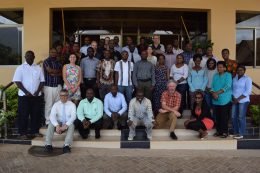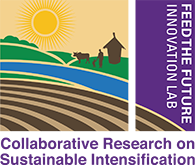
Protected areas (PAs) are critical for conservation of species and ecosystems. Since 1990, global terrestrial area designated as PAs has increased more than 50% (Juffe-Bignoli et al., 2014). While PAs are often criticized for negatively impacting the livelihoods of marginalized rural communities, contrasting dynamics have emerged outside PAs. Increasing employment opportunities, resource availability, and improved market access in PA buffers have led to higher rates of population growth in these areas compared to other rural areas (Wittemyer et al., 2008). As human populations expand and encroach upon natural habitats, many animal species face increasing competition with people for resources and space, often resulting in habitat loss and degradation. The effectiveness of PAs is also impacted by what takes place outside their boundaries (Hansen and DeFries, 2007). Species such as wildebeest (Connochaetes taurinus) use areas outside reserves for their annual migration, while African elephants (Loxodonta africana) range widely and routinely leave protected areas. Agricultural conversion and urban expansion disrupt the wildlife corridors and restrict animal populations within PAs. As a result, some species, such as the African elephant, are coming into increasing conflict with people. Human-elephant conflict takes many forms, from crop raiding to infrastructure damage, and can cause injury or death to people and/or elephants. This presents a critical challenge for PA management and food security of local communities.
Continue reading “Conservation Challenges for Sustainable Intensification of Agriculture in Africa”



